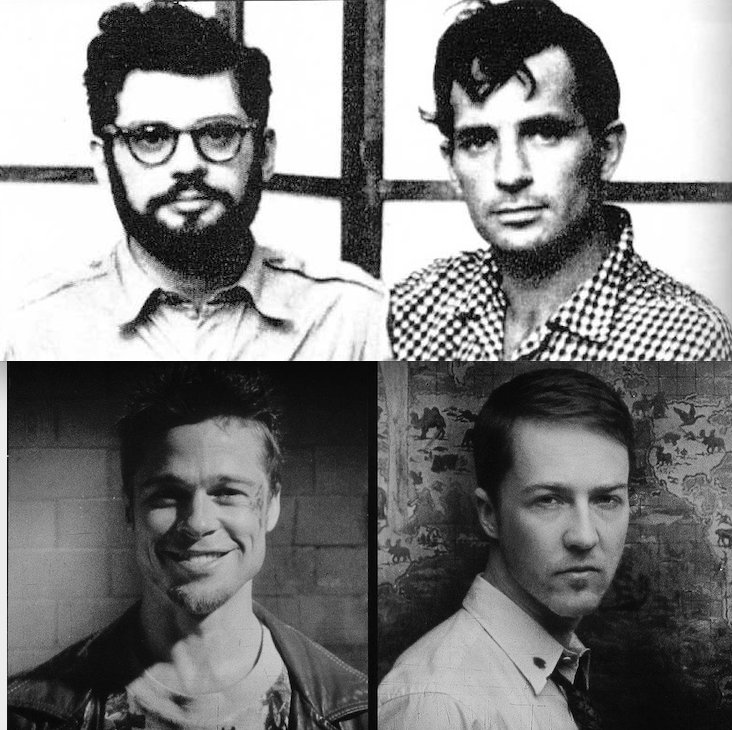Not long ago, while reading a collection of Jack Kerouac’s journals, entitled Windblown World, I came across a startling entry from April 17th, 1948, which sounds a lot like a page from Chuck Palahniuk’s book (and, later, David Fincher’s movie) Fight Club. From an informal gathering of friends in New York, Kerouac reports the following:
Ginsberg went mad and begged me to hit him — which spells the end as far as I’m concerned, since it’s hard enough to keep sane without visiting the asylum every week. He wanted to know ‘what else’ I had to do in the world that didn’t include him, and he asked me to beat him up. I never was so horrified, mortified, and disgusted, not smugly disgusted but just riven by the spectacle of his mad meaningless eyes staring at me in a mockery of human sensibility. He claimed that I was turning away from the truth when I started to leave.
Unlike Brad Pitt’s Tyler Durden converting Edward Norton’s character to recreational-therapeutic violence in Fight Club, Ginsberg never does convince Kerouac of the existential merits of hitting him — and in fact Kerouac writes off such behavior as nonsense. “I told him that I did have an unconscious desire to hit him,” Kerouac writes, but he would be glad later on that I did not. It seems to me that I did the most truthful thing there… [T]hese Ginsbergs, just coming of demonic age, assume that no one else has seen their visions of cataclysmic emotion, 90% false and 10% childish, and try to foist them on others.”
I’d have to say I agree with Kerouac. And though I enjoyed the gleeful energy of Fight Club, whenever I watch/read it, I can’t help but think the repressed male characters would be better served by a year or two out on the vagabonding road than stealing off to basement rooms to beat the crap out of each other.

